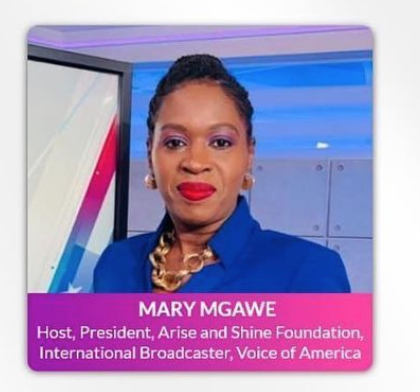
By Mensia John
Gender-based violence is a major problem that affects women and girls globally. It violates human rights and is a major barrier to achieving gender equality. In Tanzania, the problem is just as prevalent, with many women and girls suffering from various forms of violence, including sexual violence, domestic violence, and harmful traditional practices. To combat this problem, it is vital that all stakeholders, including the government, civil society, and the community, come together to act.
On October 17th and 18th, 2022, the Arise and Shine Foundation held a two-day conference. Ms Mary Mgawe, a renowned media personality, is the foundation’s president in Tanzania. The conference brought together stakeholders from various organizations involved in gender-based violence issues, all with the goal of joining forces to reduce violence against women and children in Tanzania. The following are my takeaways from the conference.
The first step in fighting gender-based violence is to raise awareness about the issue. This includes educating the public about the different forms of violence that women and girls face and the impact that this violence has on their lives. This can be achieved through campaigns, community outreach programs, and training for professionals such as teachers, health workers, and law enforcement officials.
The second step is to improve access to services for women and girls affected by gender-based violence. This includes providing them with medical and psychological support, legal assistance and other forms of assistance, such as shelter and financial support. It is important that these services are easily accessible and that they are provided in a confidential and non-judgmental manner.
The third step is to improve the legal framework for dealing with gender-based violence. This includes amending laws to make them more gender-sensitive and strengthening the enforcement of existing laws. It is also important to ensure that the legal system is accessible to all women and girls, regardless of their socio-economic status.
The fourth step is empowering women and girls to take control of their lives. This includes providing them with education and training on their rights and how to access services and opportunities to develop their skills and abilities. This will enable them to be more independent and make their own life decisions.
The fifth step is to involve the community in the fight against gender-based violence. This includes working with traditional leaders and community organizations to raise awareness about the issue and promote a culture of gender equality. It is also important to involve men and boys in the fight against gender-based violence, as they play a crucial role in changing attitudes and behaviours within their communities.
At the end of the day, all stakeholders must come together to take action against gender-based violence. This includes the government, civil society organizations, and the community. By working together, we can create a society in which every girl and woman can live happily without the fear of being subjected to violence. We must raise awareness, improve access to services, strengthen the legal framework, empower women and girls, and involve the community in the fight against gender-based violence. Only then can we hope to achieve true gender equality and end this terrible problem.
